As Eating Disorder Disorder Awareness Month nears its end, I’ve been reflecting on the role I’ve played. Mostly, it’s been a combination of advocating, sharing and listening to others — especially those who find themselves underrepresented in eating disorder treatment.
In terms of advocacy, I’ve been fortunate to have several media opportunities to speak about my experience (a great exposure test for my social anxiety!). The reporters raised many important questions around what contributed to my eating disorder, how to spot the warning signs and what local resources are available. I sincerely hope the questions keep coming, as there’s so much more I want to talk about.
Over the past month, I’ve also noticed reoccurring themes, with three in particular that I want to explore more in this blog post: talking about our lived experiences, supporting athletes with disordered eating and highlighting all the people involved in recovery treatment.
Since one of the goals of Eating Disorder Awareness Month is to discuss the roles everyone has to play, here are some resources and nuggets of wisdom I’d like to pass along.
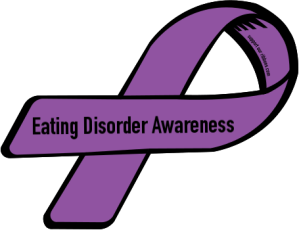
People want to hear about your lived experiences
I’m still in awe with all the interest in my story, especially after my first live TV experience. The CHCH Morning Live reporter, Annette Hamm, brought up the post I’d written on eating disorders in the workplace. One of the very, very few silver linings of this pandemic has been that I no longer have to eat lunch with co-workers (yay!).
That experience was always more unpleasant than pleasant. I’d overhear countless conversations on dieting and feel like I was being judged for my food choices. What I thought was unique to me turned out to be common — after writing that post, I heard from many others who disliked workplace lunchrooms as much as I did.
Tip: Take the time to heal before discussing your own story. There’s no way I’d be able to talk about such a personal experience a few years ago. Remember there’s no timeline to share your lived experience, so make sure you’re ready on your own terms. The National Eating Disorders Association has prepared some helpful guidelines about sharing your eating disorder story.
We can't forget about athletes and eating disorders
With the Olympics taking place from February 4-20, there’s been more talk around athletes and mental health. In fact, professional athletes are at higher risk of developing eating disorders. Two athletes in particular who are vocal about their eating disorder recovery are Canadian figure skater Kirsten Moore-Towers (featured in the TSN documentary Disorder) and American skier Jessie Diggins, both who had bulimia.
I spoke more about this topic on Newstalk 610 CKTB’s Tom McConnell Show, drawing from my own experience in gymnastics. I know first-hand about the crushing pressures in aesthetic sports to appear perfect and look a certain way. At the same time, coaches play such a significant role in athletes’ health. Part of that role is to protect against disordered eating and be aware of the warning signs.
Tip: Educate yourself on the risks and benefits of exercise. The National Eating Disorder Information Centre has put together an excellent guide for fitness professionals looking to support someone with an eating disorder, including a conversation guide and resource list. My biggest tip would be to avoid discussing weight as much as possible.
It takes a village to recover from an eating disorder
While individuals are applauded for their resilience and strength to overcome an eating disorder, the truth is that many others are often involved in the process.
My treatment team has ranged from a psychiatrist and physician in a hospital, to family and friends, to peer support and online recovery communities. I couldn’t possibly count all the people who’ve played a part in my recovery journey.
In an article for Niagara This Week, I was honoured to be featured alongside treatment providers like Pathstone Mental Health and Body Brave. Both these organizations cater to people with mental illness, with an added focus on educating and treating eating disorders.
Tip: Start with your family doctor. In my experience, a family doctor can be a good starting point and connect you with the appropriate support and treatment. However, if that option isn’t available, community-based programs (like Body Brave) don’t require an eating disorder diagnosis or referral. The NEDIC website can help direct you to the closest resources with their Find a Provider resource.

Like with all awareness months, there’s a sense that the issue at hand fizzles away on the 1st of the next month. I know that’s not the case with eating disorders because as long as we’re still in the stress of a pandemic (and likely long afterwards!), we’re going to be seeing a lot of coping through disordered eating.
My message is to remain hopeful, educated and aware. I, for one, won’t be shutting up about eating disorder recovery any time soon. Let’s all do our part to keep the advocacy train moving along! 💜
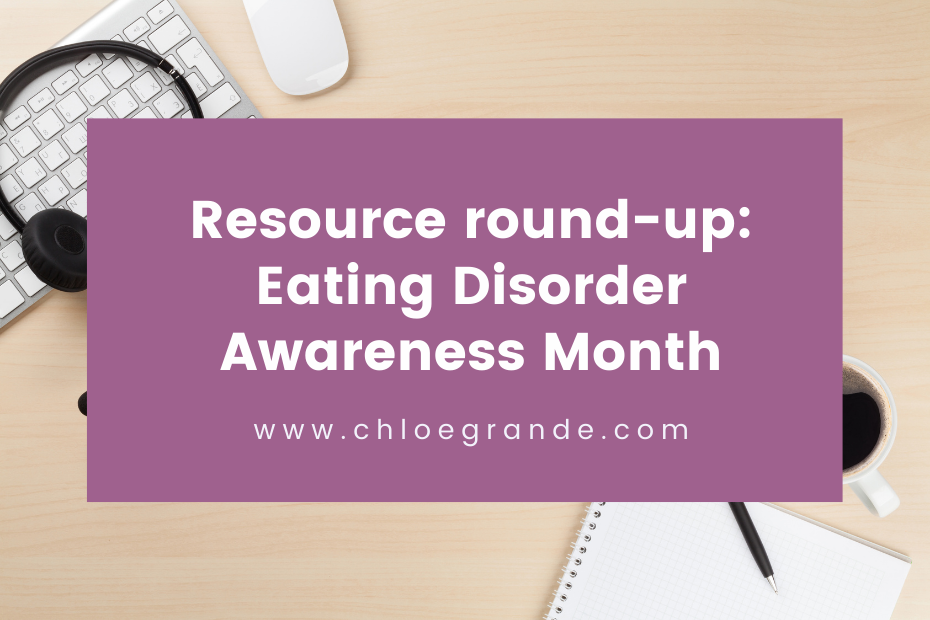
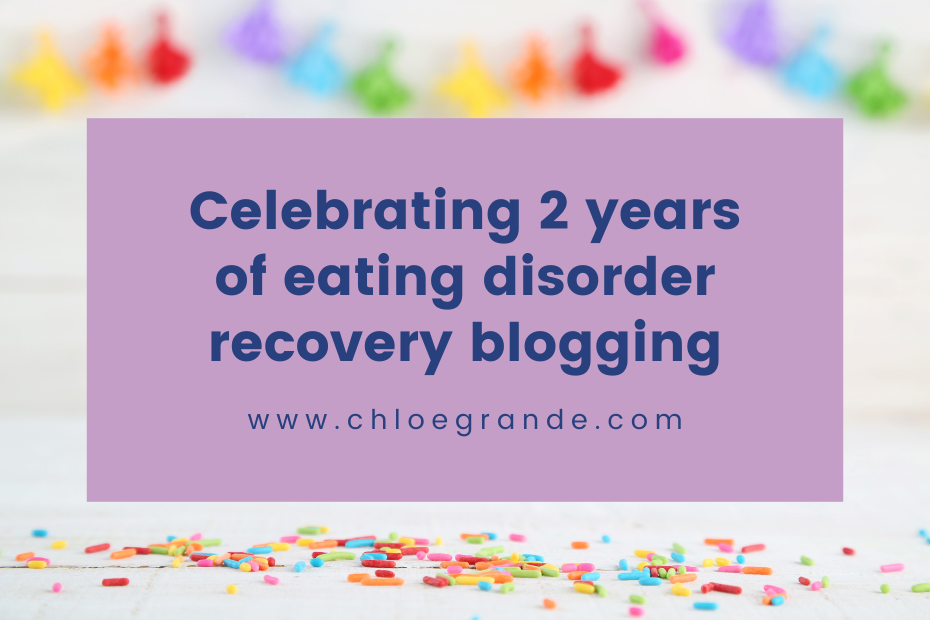
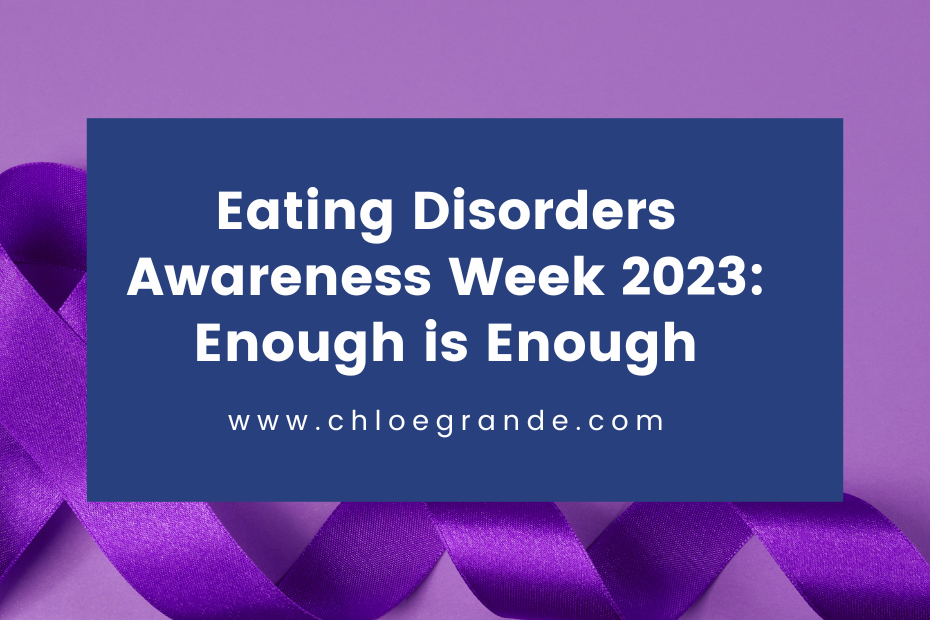
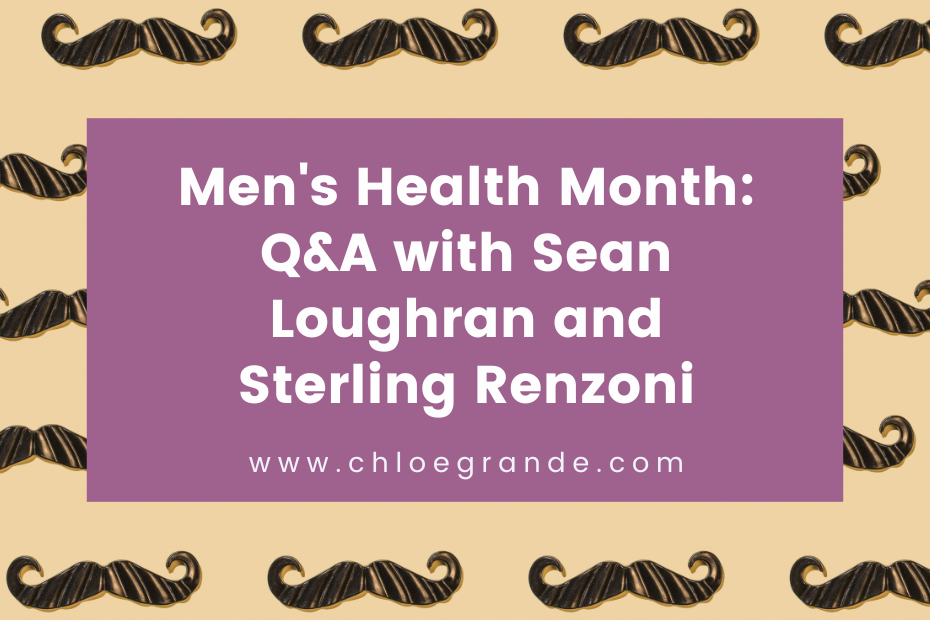
This was so informative, thank you for sharing Chloë! What stood out to me most was “Tip: Take the time to heal before discussing your own story.” This is so important – especially during awareness campaigns, seeing others share their stories can be so inspiring, motivating us to want to share ours. While sharing our stories can be a powerful and transformative experience when the time is right, doing so too early can have the opposite effect. Thanks for highlighting this!
Happy to hear that you found this post helpful, Sophie! Thanks so much for sharing your thoughts. It’s a fine balance to know when you’re ready, as of course, it’s natural to feel uncomfortable and nervous before disclosing your personal eating disorder recovery story. Personally, it took a long time and many tries to get to a place of openness of my own story, but there are certain parts that I still don’t talk about. It’s all about going at your own pace!
Congratulations on all the coverage! Great to see you getting your message out there.
Thank you so much, Kira! Eating Disorder Awareness Month has been a whirlwind!!